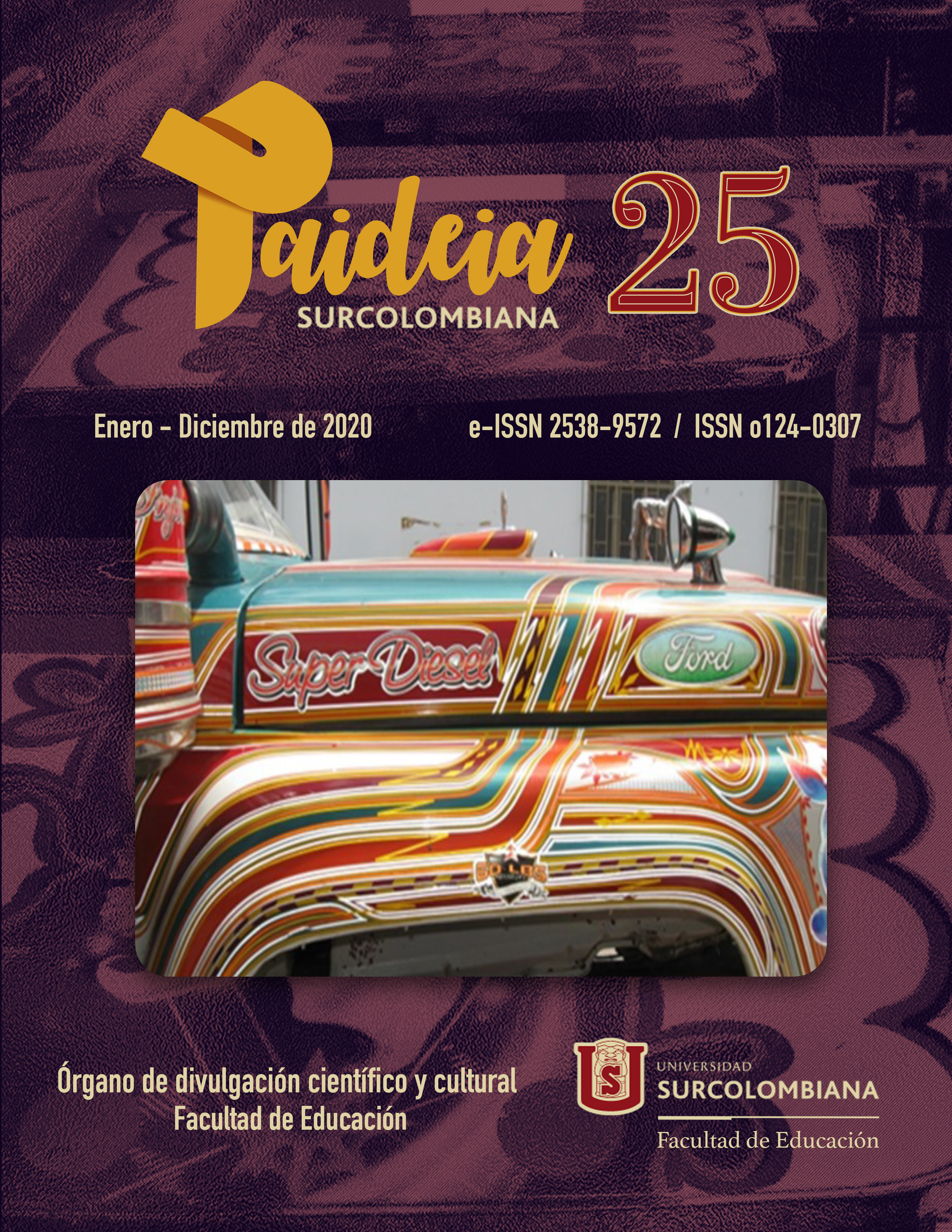The pedagogical model in the area of technology and computers and the Edmodo plataform in the Distrital Educational Institution Reuven Feuerstein
##plugins.themes.bootstrap3.article.main##
This article aims to study the analysis of technology and computer classes using a technological platform and if they are aligned with the pedagogical model pursued by the educational institution. This research was carried out at the Reuven Feuerstein District Educational Institution in the city of Barranquilla-Colombia, also derived from the doctoral thesis carried out by the author of this article. Some teachers in our context are not clear about the didactics and methodological strategies that should be used during the classes taking into account the pedagogical model and even more using technological tools, a series of surveys and interviews are carried out on each of the parties involved in the problem as teachers and students are to inquire if there is agreement between what the PEI (Institutional Educational Project) says and what is done in the teaching practice. A qualitative and quantitative approach was taken into account, for the collection of information, based mainly on surveys, interviews, documentary analysis and observation, where the generic data that frame this research are obtained. In this study we resort to the triangulation method that allows reconciling quantitative and qualitative data. This reconciliation means, for us, to complement the data derived from the different sources. The population selected for this research belongs to the tenth and eleventh grades in total 131 students, for a sample of 98 students. The results of the surveys show that students have a perception that the teaching they receive is constructivist while the teacher is based on the critical model.
Downloads
##plugins.themes.bootstrap3.article.details##
http://repository.pedagogica.edu.co/bitstream/handle/20.500.12209/9392/TE20195.pdf?sequence=1&sAllowed=y, (4 de Abril de 2019).
Arango, M. (2015). Usos reales de la red social edmodo en una experiencia de enseñanza y aprendizaje en el área de lenguaje en el grado cuarto c de la institución educativa suroriental de Pereira. Recuperado en: http://repositorio.utp.edu.co/dspace/bitstream/handle/11059/5838/3713344678A662u.pdf;jsessionid=AD4E263650CD0F1BDFA2AD7860BB48AB?sequence=1, (12 de Octubre de 2016).
Avendaño, W. (2012). Un modelo pedagógico para la educación ambiental desde la perspectiva de la modificabilidad estructural cognitiva, Recuperado en: http://www.scielo.org.co/pdf/luaz/n36/n36a09.pdf, (18 de Octubre de 2016).
Barriga, F. (2008). Educación y nuevas Tecnologías de la Información y la Comunicación: ¿hacia un paradigma educativo innovador? Sinectica, (30), 1-36.
Echevarría, Y. (2018). El modelo pedagógico tradicional. ¿arquetipo de la educación en el siglo xxi? su influencia en la enseñanza del derecho. Algunas reflexiones sobre el tema. Recuperado en:
https://www.eumed.net/actas/18/educacion/67-el-modelo-pedagogico-tradicionalarquetipo.pdf, (8 de Abril de 2019).
Flórez, R. (1999). Evaluación pedagógica y cognición. Colombia, Editorial Mc Graw Hill.
Garrido, A. (2012). Edmodo. ¿Qué es Edmodo?. Recuperado en: http://edmodo.antoniogarrido.es/introduccin.html, (26 de Octubre de 2016)
Gómez, M., Polania, N. (2008). Estilos de enseñanza y modelos pedagógicos: Un estudio con profesores del Programa de Ingeniería Financiera de la Universidad Piloto de Colombia. Recuperado en: http://repository.lasalle.edu.co/bitstream/handle/10185/1667/T85.08%20G586e.pdf, (13 de Octubre de 2016).
Herrera, J. (2019). El modelo pedagógico en el área de tecnología e informática y la plataforma Edmodo en la Institución Educativa Distrital Reuven Feuerstein. Tesis Doctoral, Universidad de Baja California.
Jaimes, W. (2011). Características y perspectivas de los modelos pedagógicos de las instituciones de educación media de la ciudad de Bucaramanga (Colombia). Recuperado en: http://hera.ugr.es/tesisugr/20956356.pdf, (30 de Octubre de 2016).
Klingler, C., y Guadalupe, V. (2001). Psicología cognitiva: estrategias en la práctica docente. McGraw Hill. México. D.F.
Laur, D. (2019). Instant Edmodo How-to. Birmingham: Packt Publishing Ltd. Recuperado en: https://books.google.com.co/books?id=lHk4EFn6U7YC&pg=PT24&dq=Instant+#v=
onepage&q=Instant&f=false, (16 de Octubre de 2016).
Meza, J. (2012). Modelo pedagógico para proyectos de formación virtual. Recuperado en: https://gc21.giz.de/ibt/var/app/wp342P/1522/wpcontent/uploads/2013/02/Ebook-final.pdf, (19 de Octubre de 2016).
Parra, J. (2014). Creatividad y tecnologías de la información y la comunicación tic en la educación media. Recuperado en:
http://tesis.udea.edu.co/dspace/bitstream/10495/7447/1/JuanParra_2014_creatividadtecnologia.pdf, (9 de Octubre de 2016).
Santaella, E. (2014). Pedagogía crítica, una propuesta educativa para la transformación social. Recuperado en: http://digibug.ugr.es/bitstream/handle/10481/32270/ReiDoCrea-Vol.3-Art.21-Santaella.pdf;jsessionid=6005B70B3D23A81344F8D5D720D6D0F4?sequence=1,
(11 de Abril de 2019).














